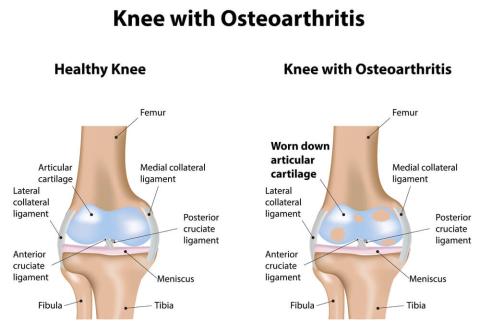
Maintaining strong bones as you age can reduce the risk for osteoporosis and related complications, such as painful vertebral compression fractures in the spine. Best spine surgeon in Nagpur, Dr. Mohammed Faizan advises to try these 11 tips to improve your bone health and protect your body.
Participate in weight-bearing exercises
Regularly performing weight-bearing activities is a great way to build and maintain bone mass.
- Go for a walk or jog. The pace and frequency of your walks or jogs are up to you. Your doctor or certified personal trainer can help you decide what is appropriate. Typically, 20 to 30 minutes, 3 to 4 times a week is recommended.
- Climb stairs, do bench steps or jumping exercises. These activities can be a step up in intensity from walking or jogging. They are great for strengthening your bones and getting a vigorous aerobic workout, says Dr. Mohammed Faizan.
- Do resistance or strength training. A session of lifting, pushing, and pulling weights (or resistance bands) 2 to 3 times per week is good for your bones and promotes overall health. For people who already have or at risk of developing osteoporosis, check with your health care provider to learn which exercises are best for you.
- Make lifestyle changes
Two lifestyle changes that can make a big difference in bone health include:
· Quit smoking.
Smoking may be a significant risk factor for bone loss. Not only that, smokers are shown to display poorer balance than non-smokers, raising the chances of falling and breaking a bone.
· Avoid excessive alcohol use. Heavy alcohol consumption interferes with the body’s ability to absorb and regulate calcium, vitamin D, and hormones. It may also increase your risk of bone density loss and bone fracture.
5. Consume plenty of calcium
Calcium helps to keep your bones strong and prevent osteoporosis. Dr. Mohammed Faizan recommends that adults get 1000 to 1200 mg of calcium daily.
6. Have fortified oatmeal for breakfast.
One pack of unsweetened instant oatmeal has over 100 mg of calcium, about 10% of the daily recommended amount. Get the kind that has added nutrients but no added sugar. Combine whole milk, almond milk, or yogurt with your oatmeal for extra calcium.
7. Try canned seafood.
Canned sardines, shrimp, and salmon are all packed with calcium and high in protein. Salmon is a great source of omega-3 fatty acids, too.
8. Eat more nuts, beans, and leafy greens.
Almonds, walnuts, and pistachios are all rich sources of calcium. Put a few handfuls in a small plastic bag and keep it nearby to snack on. Traditional baked beans and white beans also have a bunch of calcium. Eat them on their own, or add them to a low-sodium soup. Leafy greens also offer a lot of calcium. Collard greens, kale, and bok choy are all good options.
9. Consider a calcium supplement.
If your diet alone doesn’t help you to reach the daily recommended amount of calcium, talk to a doctor or pharmacist about adding over-the-counter calcium supplements to your daily routine.
10. Increase your vitamin D intake
Vitamin D helps your body hold onto bone-strengthening nutrients. Without enough vitamin D, your bones may weaken, increasing the risk of fracture.
11. Eat cereal fortified with vitamin D, eggs, and fatty fish (such as salmon).
These food options are all ways to get the recommended amount of vitamin D, which is 600 international units (IU) per day (or 800 IU for people age 70 or older).
12. Get at least 5 to 10 minutes of daily sun exposure.
Spending a little time in the sunlight helps your body to absorb vitamin D naturally. Consider putting some or all of these tips into practice. They may help you to maintain bone health and protect your body against osteoporosis, says Dr. Mohammed Faizan.
Coping and support
Your ability to cope despite pain and disability caused by osteoarthritis often determines how much of an impact osteoarthritis will have on your life. Talk to your doctor if you're feeling frustrated, because he or she may have ideas about how to cope or refer you to someone who can help.
Preparing for your appointment
You might start by seeing your primary care doctor, who might refer you to a doctor who specializes in joint disorders (rheumatologist) or orthopaedic surgery.
What you can do
Make a list that includes:
- Detailed descriptions of your symptoms and when they began
- Information about medical problems you, your parents and siblings have had
- All the prescription and over-the-counter medications and dietary supplements you take and the dosages
- Questions to ask the doctor
What to expect from your doctor?
Dr. Mohammed Faizan might ask some of the following questions:
- Is the pain continuous, or does it come and go?
- Do any particular activities make the pain better or worse?
- Have you ever injured this joint?

